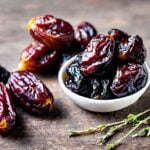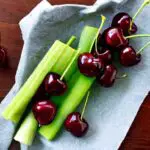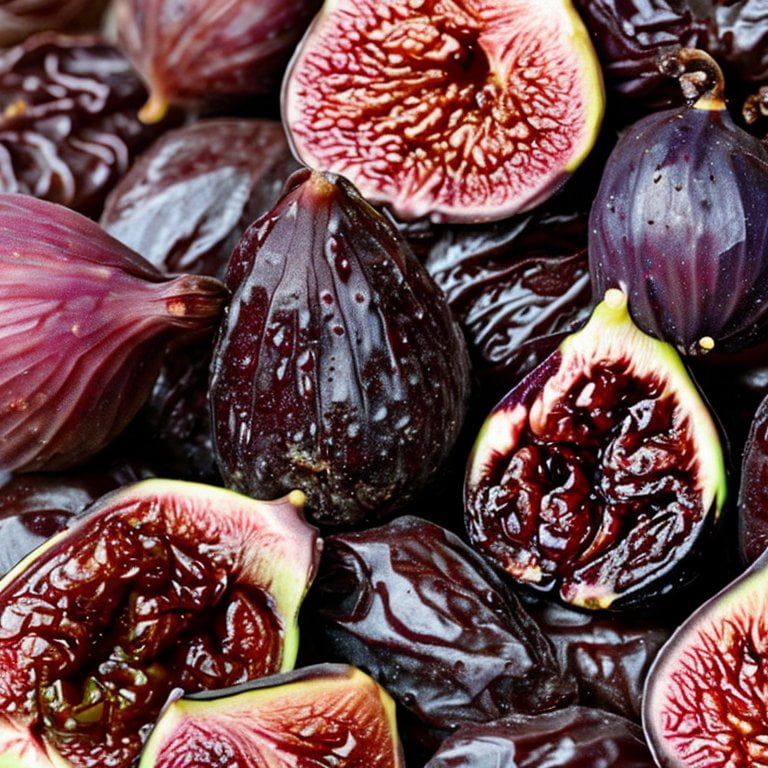
Dates, prunes, and figs are all delicious and versatile fruits that have been consumed for centuries. These dried fruits not only provide a natural sweetness to dishes but also offer a range of nutritional benefits.
In this post, we will explore the unique characteristics, health benefits, and culinary uses of dates, prunes, and figs. By understanding their individual qualities, you can make informed choices about which fruit to include in your diet and explore exciting ways to incorporate them into your culinary creations.
Table of Contents
- What are Dates?
- What are Prunes?
- What are Figs?
- Comparison of Nutritional Profile
- Taste & Cooking Uses
- Final Thoughts
What are Dates?
Dates are the fruit of the date palm tree, scientifically known as Phoenix dactylifera. These small, oval-shaped fruits have a wrinkled and sticky texture when ripe and range in color from golden amber to deep brown.
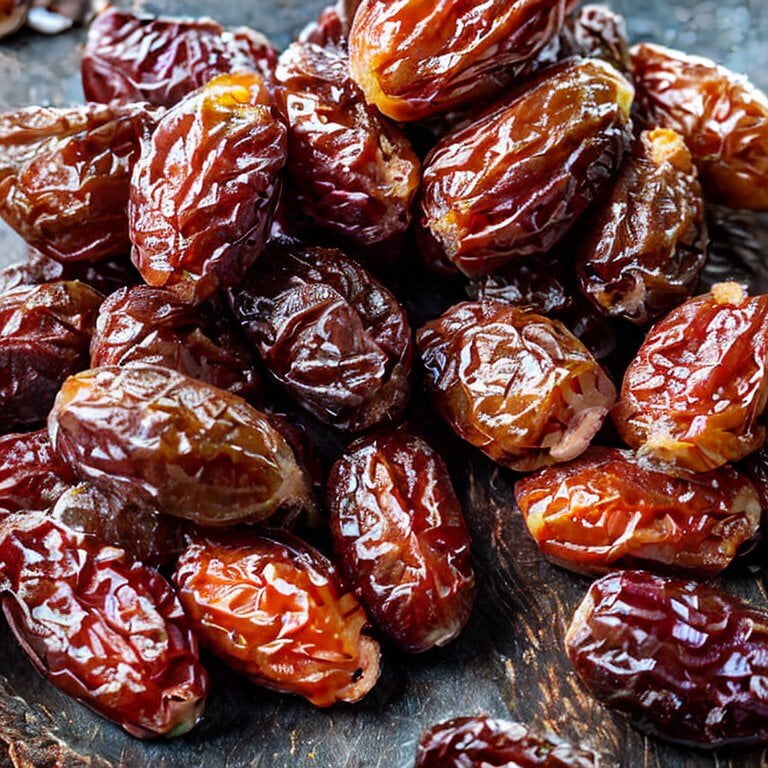
Dates are cultivated in many regions around the world and have been a staple food in the Middle East for centuries. They are known for their rich, caramel-like sweetness and have a unique flavor profile that blends honey, caramel, and hints of vanilla. Dates are often enjoyed in their dried form, which enhances their natural sweetness and concentrates their flavors.

They are not only delicious but also offer a range of health benefits, including being a good source of fiber, essential minerals like potassium and magnesium, and antioxidants. Dates are versatile in the kitchen and can be used in various recipes, such as desserts, smoothies, energy bars, and savory dishes, making them a popular choice among culinary enthusiasts.
What are Prunes?
Prunes, also known as dried plums, are fruits that come from various cultivars of the Prunus domestica species. Prunes have a deep purple to dark brown color and a wrinkled exterior, which is a result of the drying process. They have a rich, sweet taste with a slightly tangy undertone.
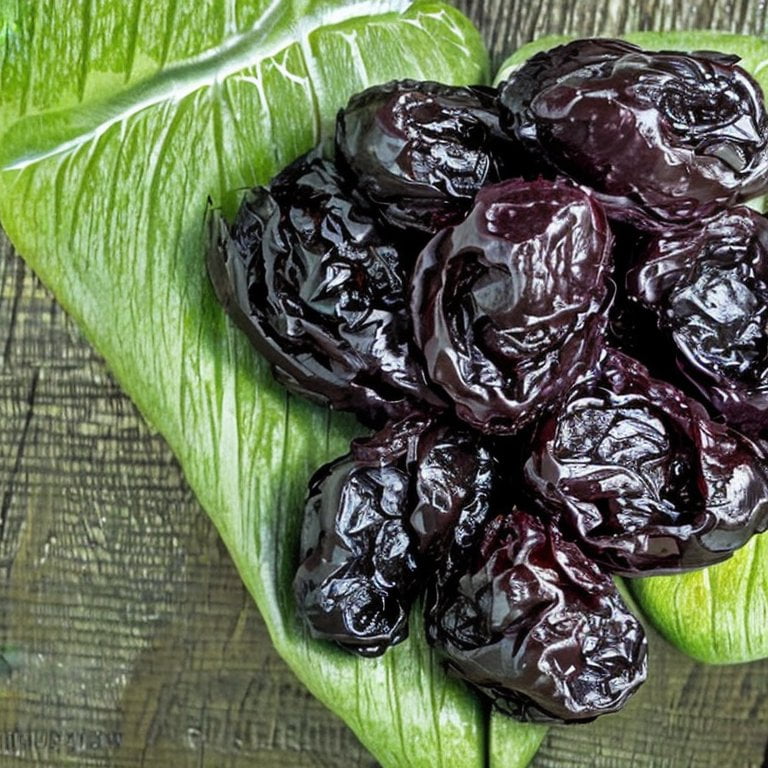
Prunes are renowned for their digestive benefits due to their high fiber content, which aids in maintaining regular bowel movements and promoting healthy digestion. Additionally, prunes contain sorbitol, a natural sugar alcohol that acts as a mild laxative. These dried fruits are also packed with essential nutrients, including vitamins A and K, which are beneficial for eye health and blood clotting, respectively.
Prunes are versatile in the culinary world and can be enjoyed on their own as a snack, used as a natural sweetener in baked goods, or incorporated into both sweet and savory dishes to add a unique depth of flavor.
What are Figs?
Figs are luscious fruits that come from the Ficus carica tree, a member of the mulberry family. They have a unique appearance, with a bulbous shape and a soft, pear-like texture. Figs come in various colors, including green, purple, and black, depending on the variety.
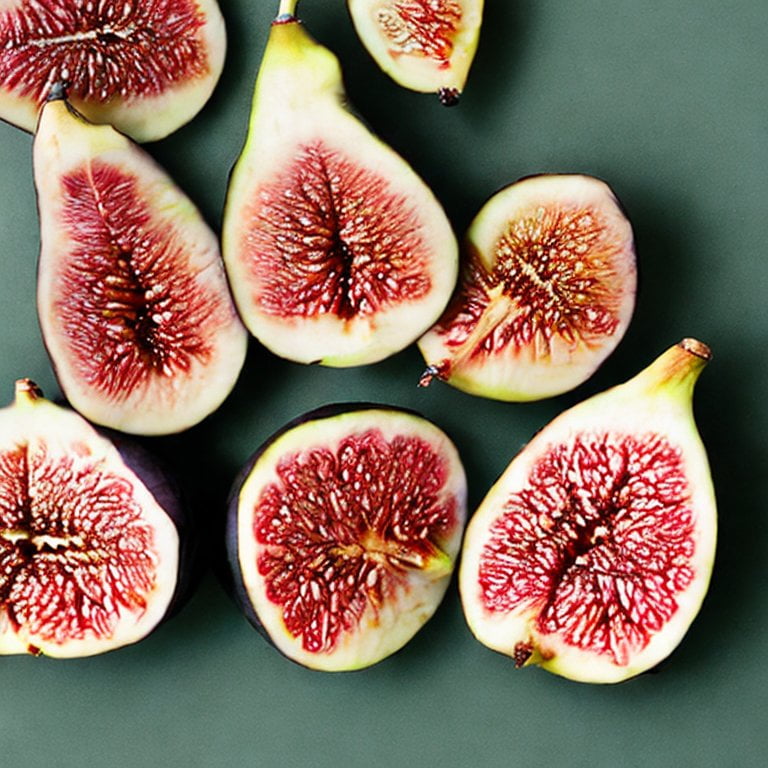
When ripe, they offer a delightful combination of sweetness and subtle nuttiness. Figs can be enjoyed both fresh and dried, each offering its own distinct flavor and texture. Fresh figs have a delicate sweetness and are often enjoyed on their own or incorporated into salads, desserts, and cheese platters. Dried figs, on the other hand, have a chewy texture and a rich, concentrated sweetness, making them a popular choice for baking, preserves, and snacking.
Beyond their delicious taste, figs are also packed with nutritional benefits. They are a good source of dietary fiber, calcium, potassium, and antioxidants. Figs have been cultivated for thousands of years and have a rich history, often associated with Mediterranean cuisine. Their versatility, unique taste, and nutritional profile make figs a beloved and sought-after fruit in the culinary world.
Comparison of Nutritional Profile
First, we’ll look at how the three fruits compare in nutrition and benefits.
Dates
Dates are known for their high sugar content, providing a natural source of energy. They are also rich in dietary fiber, which aids digestion and helps maintain bowel regularity. Dates contain essential minerals such as potassium, magnesium, and copper, which contribute to bone health and proper muscle function. Additionally, they are a good source of antioxidants, particularly phenolic compounds, which may have anti-inflammatory properties and help protect against chronic diseases.
Prunes
Prunes, also known as dried plums, are renowned for their digestive benefits. They are high in dietary fiber, which can support healthy digestion, prevent constipation, and promote satiety. Prunes are a good source of vitamins A and K, which are essential for eye health and blood clotting, respectively.
Furthermore, they contain sorbitol, a natural sugar alcohol known for its laxative effect. (See Dates vs Prunes for Constipation) Prunes also offer a variety of antioxidants that can aid in overall well-being and support the immune system.
Figs
Figs are unique in terms of their nutritional profile. They are rich in dietary fiber, which can promote healthy digestion and aid in weight management. Figs also provide an array of essential minerals such as calcium, iron, and potassium, which contribute to bone health, blood oxygenation, and heart function. They are a good source of vitamins C and K, which support immune function and bone health. Additionally, figs contain a type of soluble fiber called pectin, which can help reduce cholesterol levels.
Taste & Cooking Uses
When it comes to culinary uses and taste, dates are often used as a natural sweetener and can be incorporated into a wide range of dishes, from desserts to savory recipes. Prunes add a rich flavor to both sweet and savory dishes and are particularly popular in baking and meat preparations. Figs, with their delicate sweetness and chewy texture, are enjoyed fresh or dried and can be used in both sweet and savory recipes, enhancing the overall taste and visual appeal.
Here’s a breakdown of each one:
Dates
Dates have a sweet, caramel-like flavor and a chewy texture, making them a popular ingredient in desserts, smoothies, and energy bars. They can be enjoyed on their own as a snack or used as a natural sweetener in baking recipes. Medjool dates, in particular, are prized for their large size, softness, and rich taste. They can be stuffed with nuts or cheese for a delightful appetizer or incorporated into savory dishes like tagines and stews for a touch of sweetness.
Prunes
Prunes have a rich, deep flavor with a sweet and slightly tangy taste. They are commonly used in both sweet and savory dishes. Prunes can be added to baked goods like cakes, bread, and muffins for a moist texture and enhanced sweetness. They can also be pureed and used as a natural sweetener in sauces and marinades. In savory cooking, prunes can be incorporated into meat dishes, such as stews and braises, to add a rich depth of flavor.
Figs
Figs have a naturally sweet and subtly nutty taste with a tender, chewy texture. They are delicious when eaten fresh or dried. Fresh figs can be enjoyed on their own, sliced and added to salads, or paired with cheese and nuts for a gourmet appetizer. Dried figs can be used in a variety of dishes, including baked goods, jams, and chutneys. They can also be stuffed with ingredients like almonds or chocolate for a delightful treat.
Final Thoughts
Dates, prunes, and figs are all versatile and nutritious dried fruits that offer unique flavors and health benefits. While dates are rich in energy and essential minerals, prunes are known for their digestive properties and vitamin content, and figs provide a range of nutrients and contribute to heart and bone health.
When it comes to the culinary realm, dates, prunes, and figs showcase their versatility by imparting distinctive flavors and textures to a variety of dishes. Dates, with their inherent natural sweetness, are frequently employed as a wholesome sweetener, finding their way into an expansive array of recipes ranging from delectable desserts to savory culinary creations. Prunes, on the other hand, offer a sumptuous richness that elevates both sweet and savory dishes, making them particularly sought after in the realm of baking and meat preparations. As for figs, their delicate sweetness and luscious, chewy texture make them a delightful addition to both sweet indulgences and savory masterpieces, enhancing the overall gustatory experience and visually captivating the senses.
Ultimately, the choice between dates, prunes, and figs comes down to personal preference and specific dietary needs. It’s worth experimenting with each fruit to discover your favorites and find creative ways to incorporate them into your meals and snacks. Remember to consume dried fruits in moderation, as they are high in natural sugars and calories.
By incorporating dates, prunes, or figs into your diet, you can enjoy their unique flavors, reap their nutritional benefits, and add a touch of natural sweetness to your culinary creations.
Lance has been passionate about the plant-based diet and we have been following a whole food plant-based diet for over 5 years. We focus on health, natural healing, weight management, animal rights, and the health of the planet and environment by focusing on whole plant-based foods and sustainable practices.
Learn more at the About Me page and follow on social media at the links below.





